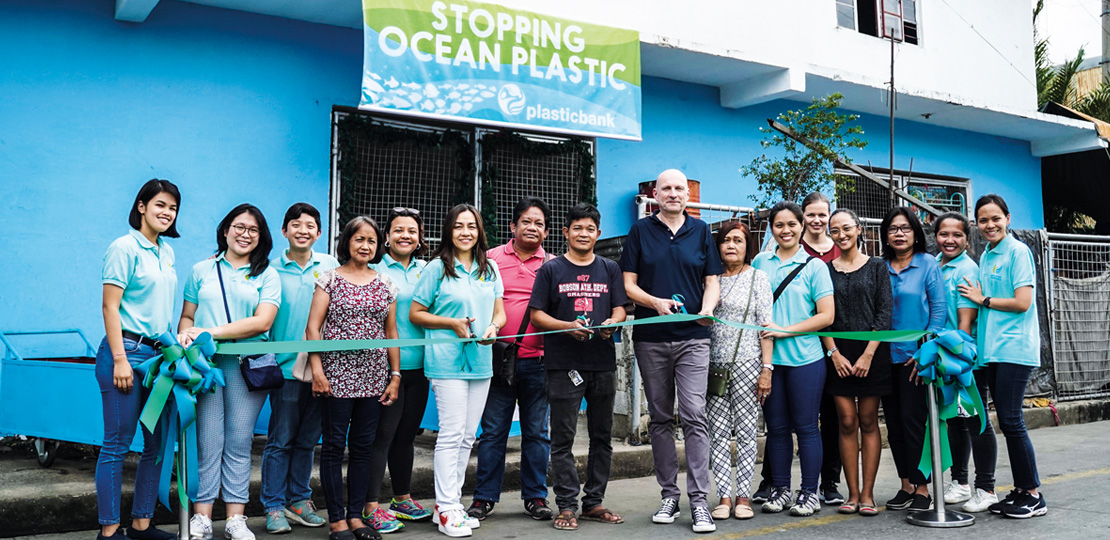Minimum standards, no ifs or buts
At Greiner, we have stood for sustainable, long-term business for over 150 years. As a global company, we bear responsibility for our employees, society and the environment. To ensure that this responsibility is also reflected in our day-to-day business, we have committed to observing ethical and sustainable practices in all of our business activities. This applies both internally and externally for our suppliers and business partners. We have defined our principles for collaboration in our Code of Conduct for Suppliers and Business Partners. We consider our Code of Conduct a non-negotiable minimum standard underpinning our relationship with suppliers and business partners. All new suppliers and business partners must sign the Code of Conduct. This creates a sound basis for our responsibility for people and the environment, ensuring that our actions and those of our suppliers and business partners are ethical, environmentally sustainable and socially acceptable. For us, sustainability covers the entire procurement process of materials, products and services.
Our Code of Conduct is based on:
- social,
- environmental and
- ethical policies and principles.
Under this holistic approach, upholding human rights, international labor, health and environmental protection provisions and ensuring that business practices are transparent and in line with the law are central criteria when selecting and assessing our suppliers and business partners. If third parties are commissioned as part of a business relationship, we also expect these subcontractors or representatives to work in accordance with the fundamental principles outlined in this Code of Conduct. In individual cases, we retain the right to check compliance with the requirements on site and, if provisions have been violated, to terminate the business relationship.
Our company aspires to live our values and to behave in a legally and ethically impeccable manner. We set up tell-greiner.com as a platform to easily report breaches of this Code of Conduct. This provides our employees, business partners and customers with another way to anonymously report any violations of our Code. There were no reports of breaches of our Code of Conduct by suppliers or business partners in 2019 or 2020.
In 2018, we set ourselves the goal that those suppliers and business partners who make up 80 percent of our total purchasing volume sign either the Greiner Code of Conduct or a similar policy. In 2020, suppliers and business partners representing 65 percent of our purchasing volume had signed the Greiner or an equivalent Code of Conduct. We were unable to achieve our target of 80 percent by the end of 2020. This is partly because the complete takeover of Eurofoam – a 50:50 joint venture between Greiner and the Belgium company Recticel – had a significant influence on the purchasing and thus on the signing of our Code of Conduct. Since November 2020, Eurofoam, aerospace, Perfoam, PURtec, MULTIfoam, Unifoam and Gukotech have pooled resources in our integrated foam group NEVEON. To close gaps in communicating, establishing and ratifying our Code of Conduct that have emerged as a result of this repositioning as quickly as possible, NEVEON will work closely with all of its suppliers.

“There were no reports of breaches of our Code of Conduct by suppliers or business partners in 2019 or 2020.”
Greiner suppliers are as international and diverse as our company. With our commitment to sustainable procurement, we aim to ensure that the values that represent the core of our company are also observed in our supply chain. Most environmental and social impacts occur in our supply chain. Our procurement therefore provides a strong basis on which to stimulate positive changes towards sustainability and a circular economy. With an independent Sustainable Sourcing Policy, we have defined a framework for sustainable procurement. In terms of our procurement, this means acquiring processes, products and services in a way that takes account of an array of social, environmental and economic factors from manufacturing to disposal. If a supplier or a business partner is unable and/or unwilling to meet our requirements in one way or another, we will sit down together and work out an action plan to discuss what measures to take to resolve the issue. If the supplier or business partner proves permanently unwilling to cooperate or if the measures taken fail, the business relationship is the last resort.
Share of suppliers and business partners with a Code of Conduct (by purchasing volume)
Responsible procurement has a positive impact on global challenges and all players along the value chain. In our holistic approach, sustainability criteria such as environmental protection and occupational safety as well as compliance with human rights are included in the selection and evaluation of all suppliers and business partners. We have long-standing business relationships with most of our suppliers and they have known about our high standards for a long time. When working with new suppliers and business partners, we believe it is important that we leave no room for ambiguity when communicating our expectations.
Share of suppliers and business partners with a Code of Conduct in each division (by purchasing volume in 2020)
Materials such as granulates, fibers, chemicals and metals account for most of our total purchasing volume. When procuring these materials and other services, at Greiner we make a concerted effort to do business with local companies. We critically evaluate procurement from “risk countries” (as classified by the Business Social Compliance Initiative), which feature high levels of corruption or political instability. In this way, we minimize the risks in our supply chain. As well as third party supplier assessments, we also use sustainability ratings and audits to review compliance with our principles. In this way, as purchasers, we exert influence on our suppliers so that they improve working conditions and environmental protection. For 2021, we aimed to more firmly anchor our Sustainable Sourcing Policy in the company and to raise awareness of this among our colleagues in procurement. For this to succeed, we will step up our training sessions on sustainable procurement. By 2023, we aim to have given sustainable procurement training to all employees who have a hand in purchasing. Our purchasers are required to attend training on this every two years.
More secondary materials, fewer primary raw materials
Collaboration with cirplus: setting standards
Establishing a market for secondary materials requires a standard. To achieve this, we are working with a young company that operates in precisely this area. cirplus is a digital marketplace that links companies with the plastics and recycling industry. The platform simplifies complex transactions, most of which used to be done offline. By joining up fragmented and non-transparent markets, cirplus is the key digital link needed to make plastic waste a valuable resource again. Trading recycled materials and using them in industry requires a standardized description of the material requirements that all stakeholders in the circular economy can use as a basis. In light of this, we are working with cirplus on developing DIN SPEC – standards for (online) trading in plastic waste and recycled materials and processing these. The aim is to evaluate and categorize minimum quality standards of recycled materials and potential deviations in the form of quality bands and to create guidelines for labeling these in regranulates and compounds.
As well as the obligation to uphold our Code of Conduct and self-declarations by our suppliers, we also use external ratings to assess suppliers and business partners in order to receive an objective assessment from independent evaluation platforms. Our main tool to assess our suppliers is the evaluation platform EcoVadis. This platform allows us to reduce sustainability risks and improve the environmental and social footprint in our supply chain. EcoVadis’s methodology is based on international sustainability standards. Participating companies receive a sustainability scorecard that uses 21 criteria in the four areas of environment, labor and human rights, ethics and sustainable procurement to illustrate the company’s performance. In 2019, we began using this evaluation for Greiner Packaging suppliers.
We achieved our goal of having all Greiner Packaging strategic material suppliers evaluated by EcoVadis by the end of 2020. More than 50 percent of the strategic material suppliers have so far been evaluated in terms of their sustainability performance. As our next intermediate target, we are aiming to establish evaluation platforms in all of our divisions by 2023. As the EcoVadis supplier evaluation began only recently and currently covers only one division (Greiner Packaging), we do not yet differentiate between new and existing suppliers when assessing their social and environmental performance. However, once the evaluation approach has been fully implemented, we will be able to make this distinction in our sustainability reporting, too.
Greiner Packaging contacted a total of 123 strategic suppliers in the 2019 and 2020 reporting period. 68 of these suppliers agreed to be evaluated by EcoVadis and to share their scorecard with us. The suppliers who did not accept our invitation explained that they did not have the resources to carry out the evaluation on account of the 2020 coronavirus pandemic. When selecting our suppliers for 2020, we focused on suppliers who operate in risk countries. 36 of all suppliers evaluated operate in risk countries. Nevertheless, EcoVadis’s total score averaged 55 out of 100 potential points. The evaluation of suppliers also showed that 70 percent of all suppliers assessed by Greiner improved their score over recent years.
Supplier assessments at Greiner Packaging
|
|
2019 |
|
2020 |
|---|---|---|---|---|
Suppliers identified with significant current and potentially negative environmental impact |
|
n/a |
|
1 |
Suppliers identified with significant current and potentially negative social impact |
|
n/a |
|
1 |
Suppliers identified with significant current and potentially negative ethical impact |
|
n/a |
|
1 |
Suppliers identified with significant current and potentially negative impact in sustainable procurement |
|
n/a |
|
3 |
More secondary materials, fewer primary raw materials
Acting together: Forum Rezyklat in Germany
Above all, using more recycled materials requires trust and dialog between individual stakeholders. In terms of the technology, lots is already possible outside the food sector. Greiner Packaging has been a member of the Forum Rezyklat (recycled materials forum) in Germany since 2020 as a way of promoting dialog. Forum Rezyklat was launched by dm-drogerie markt in 2018. Today, over 30 members work on increasing the use of recycled materials across value creation. Members are located along the entire circular economy value chain. Together, the initiative works on raising awareness of the circular economy among consumers to ensure that recyclable materials are clearly separated. The aim of this is to increase the recycling rate in the long term and the proportion of recycled materials in products and packaging. Furthermore, the Forum aims to reduce packaging and to ensure as early as the development process for new packaging that it can be recycled and are therefore preserved as a resource in the circular economy.
The EcoVadis supplier evaluation of Greiner Packaging found that one supplier may have a negative environmental and social impact. This company, which works in the wholesale trade of chemicals, is located in the US and has a low EcoVadis score. This partly reflects a lack of management systems. In addition to environmental and social aspects, business ethics are also very important to us. Another company from our supplier list scored poorly in this area. The supplier company operates in the paper industry and is based in Russia. Last but not least, we expect that our suppliers expect the same from its suppliers as Greiner does. Three of our suppliers rated poorly in sustainable procurement. Two of these suppliers are in Russia and one is in Germany. Their low score is due to a lack of policies and key performance indicators relating to procurement. In 2021, we will develop an action plan together with the suppliers to make improvements to these areas.
Greiner Packaging EcoVadis scores
It is not only our suppliers that we examine closely: we like to set a good example ourselves, too. In order to set high standards not only for our suppliers and business partners but also for ourselves, we tie the assessment of our sustainability performance by EcoVadis to ambitious targets. This is in line with customers’ expectations and our own. Above all in the Greiner Packaging division, we see a continuous demand for information on our business and production processes. This is one of the reasons we have had Greiner Packaging evaluated by EcoVadis since 2014. The results show that our EcoVadis performance has improved steadily in recent years. This is because we take these evaluations very seriously. Numerous colleagues are involved and all results are communicated internally, areas for improvement are discussed and then an action plan and necessary measures are drawn up. Every evaluation is a way for us to learn something new. Our actions are rounded off by audits – both by Greiner and by third parties in the case of new suppliers or if there are quality problems at existing suppliers. Greiner Packaging was awarded the EcoVadis Gold prize in 2020, which we consider the great success of all these efforts. Greiner Packaging is thus in the top three percent of companies evaluated by EcoVadis in the plastics manufacturing sector.

More secondary materials, fewer primary raw materials
Ocean plastic – reusing plastic waste from the sea
Another project in our development pipelines looks at ocean plastic. It is no secret that just a dozen of the world’s rivers are responsible for about 90 percent of all plastic waste in the oceans. In 2019, we therefore decided to support the social company Plastic Bank. Plastic Bank aims to turn plastic into gold. Plastic Bank buys plastic waste from collectors. In return, they receive a premium from Plastic Bank for the plastic they have collected and thus an income – and so plastic in effect becomes a valuable currency. To help make this concept a viable and sustainable success, we took a closer look at the plastic collected – known as ocean plastic – during our development tests. We are convinced that we can reuse the material collected for regular products. This closes the cycle and demonstrates the value of the material. To do so, however, the ocean plastic must meet the highest quality standards. We will therefore keep testing in the future and, together with our customers, take a look at how to use these recycled materials that – without our joint commitment – would continue to pollute the oceans.
At Greiner, we are constantly working on creating a working environment in which our employees can best develop, work innovatively and provide outstanding services. Treating all employees fairly and with respect is fundamental to this and an essential aspect of our corporate culture. As a logical consequence of this, we are fully committed to the principles of the UN Global Compact initiative, the central values of which are also reflected in our Code of Conduct. This explicitly states that our suppliers and business partners must respect the globally applicable regulations for the protection of human rights as fundamental and universal requirements. This includes in particular that they must not use either forced labor nor child labor, and must abide by Convention 138 (Minimum Age), Convention 182 (Worst Forms of Child Labor) and Convention 105 (Abolition of Forced Labor) established by the International Labor Organization (ILO).

“We will not tolerate violations of precarious working conditions or human rights.”
Our company operates almost 140 sites (including sales offices) in more than 30 countries. Some of these are classified as high-risk countries regarding the probability of employing workers forced into modern slavery. We also purchase goods, components, raw materials and services from a large number of suppliers based in many different countries. Some of these countries are also considered high-risk countries in terms of modern slavery. These include India, China, Pakistan, Bangladesh, Russia, Indonesia, Egypt, Myanmar, Iran, Turkey and Thailand. In addition, we also have representatives, distributors and joint ventures, some of which work in these high-risk countries. Many of these suppliers and the goods and/or services are essential for our business operations. To mitigate the potential negative impact of key suppliers who are involved in modern slavery, we collaborate with multiple suppliers to procure important raw materials. This gives us greater flexibility to stop doing business with suppliers found to have violated our company values. To further minimize risks associated with human rights, we will carry out audits to ensure that our suppliers also comply with all established standards in this area. This strategic decision to make an active stand against slavery and other human rights abuses in our supply chains goes hand in hand with the need to clearly communicate the importance of this issue internally and externally.
This includes:
- Training programs on slavery and human trafficking for our employees, especially in purchasing,
- identifying parts of the company and business processes than are more prone to risk,
- due diligence processes for compliance with our due diligence obligations regarding human rights in the company and value chains,
- regularly reviewing the effectiveness of these measures using suitable indicators and criteria.
Total purchasing volume by country - TOP 15 (2020)
Total purchasing volume by risk country & and non-risk country (2020)
We purchase raw materials from the following risk countries:
- Egypt
- Bosnia and Herzegovina
- Brazil
- China
- India
- Mexico
- Romania
- Russia
- Serbia
- South Africa
- Syria
- Thailand
- Turkey
Country risk classification is based on amfori BSCI’s Countries’ Risk Classification. A country’s risk is rated on a scale of 0 to 100, with 0 representing the highest risk and 100 the lowest.
amfori BSCI divides countries into two categories:
- Risk countries: Countries with WGI average rating between 0-60 or three or more individual dimensions rated below 60.
- Low risk countries: Countries with WGI average rating higher than 60 and no more than two individual dimensions rated below 60.

